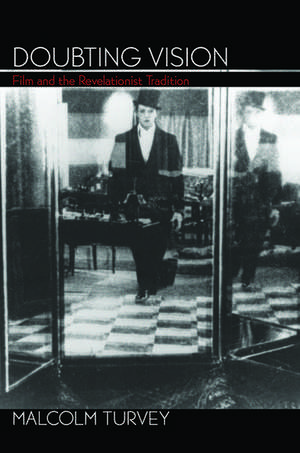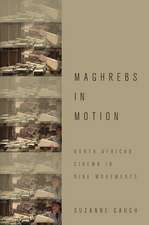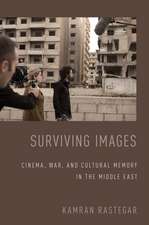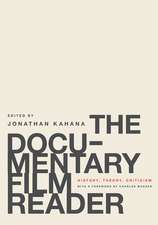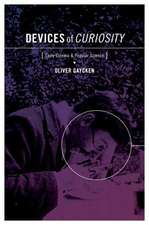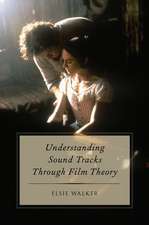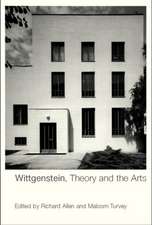Doubting Vision: Film and the Revelationist Tradition
Autor Malcolm Turveyen Limba Engleză Paperback – 14 aug 2008
| Toate formatele și edițiile | Preț | Express |
|---|---|---|
| Paperback (1) | 262.48 lei 32-37 zile | |
| Oxford University Press – 14 aug 2008 | 262.48 lei 32-37 zile | |
| Hardback (1) | 756.58 lei 32-37 zile | |
| Oxford University Press – 25 sep 2008 | 756.58 lei 32-37 zile |
Preț: 262.48 lei
Preț vechi: 293.71 lei
-11% Nou
Puncte Express: 394
Preț estimativ în valută:
50.23€ • 52.34$ • 41.59£
50.23€ • 52.34$ • 41.59£
Carte tipărită la comandă
Livrare economică 24-29 martie
Preluare comenzi: 021 569.72.76
Specificații
ISBN-13: 9780195320985
ISBN-10: 0195320980
Pagini: 160
Ilustrații: numerous halftones
Dimensiuni: 229 x 152 x 15 mm
Greutate: 0.2 kg
Editura: Oxford University Press
Colecția OUP USA
Locul publicării:New York, United States
ISBN-10: 0195320980
Pagini: 160
Ilustrații: numerous halftones
Dimensiuni: 229 x 152 x 15 mm
Greutate: 0.2 kg
Editura: Oxford University Press
Colecția OUP USA
Locul publicării:New York, United States
Recenzii
Classical film theory represents a rich body of work that is generally overlooked nowadays by contemporary scholars of cinema. In Doubting Vision, Malcolm Turvey demonstrates that this is a mistake. He identifies a hitherto ill-recognized strand of the tradition--the revelationist tradition--and he shows astutely how critical engagement with it has great significance for debates in contemporary film theory.
In this philosophically acute and elegantly concise book, Turvey proves himself a bold and highly original interlocutor of the tradition of classical film theory. Anyone interested in the cognitive value of cinema, modernist aesthetics, and visual culture will find his study indispensable, and long overdue.
In this profoundly original book Turvey anatomizes with acuity and precision a third revelationist tradition of film theory alongside the familiar creationist and realist traditions and traces its persistence in contemporary writers such as Cavell and Deleuze. Further, he demonstrates how the roots of this tradition lie in the denigration of vision within modernism, a denigration that is based upon a conceptual confusion about the nature of seeing. This Turvey systematically extirpates with the tools of ordinary language philosophy. Written with remarkable lucidity and panache, Doubting Vision is an intellectual tour de force that is required reading for all film scholars and anyone who is interested in the history of modernism.
In this philosophically acute and elegantly concise book, Turvey proves himself a bold and highly original interlocutor of the tradition of classical film theory. Anyone interested in the cognitive value of cinema, modernist aesthetics, and visual culture will find his study indispensable, and long overdue.
In this profoundly original book Turvey anatomizes with acuity and precision a third revelationist tradition of film theory alongside the familiar creationist and realist traditions and traces its persistence in contemporary writers such as Cavell and Deleuze. Further, he demonstrates how the roots of this tradition lie in the denigration of vision within modernism, a denigration that is based upon a conceptual confusion about the nature of seeing. This Turvey systematically extirpates with the tools of ordinary language philosophy. Written with remarkable lucidity and panache, Doubting Vision is an intellectual tour de force that is required reading for all film scholars and anyone who is interested in the history of modernism.
Notă biografică
Malcolm Turvey is Professor of Film History and Chair of Visual Culture Department, Sarah Lawrence College. He is also editor and writer for October and co-editor of Wittgenstein, Theory and the Arts (Routledgem, 2001)
